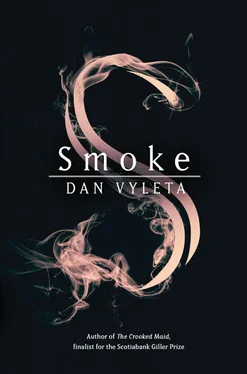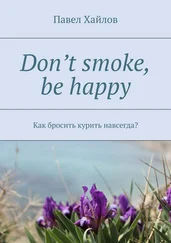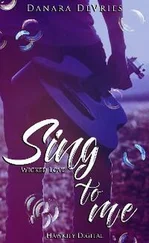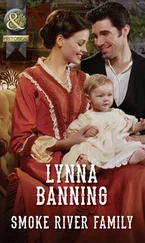It’s Thomas’s turn first.
“I regret you are in such a hurry to leave, Mr. Argyle. I had high hopes for you.”
“I often disappoint.”
She smiles. “I imagine so.” She looks over at a letter lying on her desk. “There is news from Parliament today. I only just received it. They held a special session early this morning. On New Year’s Day, would you believe? It’s quite unprecedented. The Speaker called for a vote on the proposed amendments to the Purity of the Realm Act. Most of the delegates were out of town, of course. The amendment has been voted down. There will be no changes to the embargo. It’s a perfect Tory triumph. I am afraid your good Dr. Renfrew will be rather crushed.” She gives them a look of pain and scorn. “We live at a fateful time, gentlemen. The future of our country hangs in the balance. And you choose to behave like children playing hide-and-seek.”
She lets go of Thomas’s hand with a brusqueness bordering on violence. It’s Charlie’s turn next. Up close her face looks drawn, almost haggard. He has not noticed it before.
“You will, I trust, refrain from mentioning any details about my husband’s condition to anyone, even your family. It might be best to suggest you never saw him. He is bedridden. Let that be enough.”
She gives his hand a final squeeze, turns away from them, reclaims her seat.
“That is all. Good-bye, gentlemen. Bon voyage.”
“We won’t see you in the morning?”
“I have work to do.”
That is the last they know of her, bent over her desk, dipping her pen into a vat of ink. In her mind they seem to have already ceased to exist.
ф
Outside Lady Naylor’s office, they find Livia lingering. It is obvious she has waited for them, but as they approach she suddenly starts walking, away from them. Charlie runs after her for a few steps, stops, calls.
“We are leaving at dawn,” he calls.
She turns, and at the same time starts running. A twitch cuts a wrinkle through the fine composure of her face. And then the impossible happens: a drop of Smoke, blue-grey and almost liquid, pours from her nose onto her upper lip. The next moment she turns the corner. From far away a word reaches them, muffled, though she must have shouted it.
“Adieu.”
Ido not sleep. There is another place, of not-sleep, that I can freely enter where one may dream but find no rest. It is like a room with a door that leans open. I try to resist it, but time and again am drawn there, poke open that door, slip my face (only my face!) around its frame. Inside sits another me, an iron ring around his neck, and the wallpaper stages a ball of a thousand grandes dames dancing. Gold leaf on mauve. As the Smoke pours out of me (the other me, the one I am watching), I burn my own silhouette into the wall. It discommodes the dancers. When dawn breaks through the open curtains, I am exhausted, my face still swollen like a pumpkin. Outside, the pheasant whose steady patrol was so much a part of our stay here is nowhere to be seen. Perhaps he is no longer with us. We had pheasant soup last night.
The morning does not go to plan. The coach is there, and Thorpe has sent servants to have our luggage loaded, but up on the box sits not Harrington, the coachman who drove us here, but Mr. Price, a heavy shotgun thrown across his thighs. When I ask him what he thinks he is doing up there, he spits some phrases into his muffler.
“Lady’s orders. A band of Gypsies. Sighted not ten leagues from here. Job calls for someone good with a gun. Just in case.”
He cuts himself a plug of tobacco, sets to chewing it. Thorpe opens the door for us, his face blank of emotion. Charlie climbs in first.
“In a few hours we’ll be on the express,” he says.
A jolt of envy runs through me. Charlie’s soul is knit for hope. Mine’s stuck in the mud of the things that may go wrong.
Nobody waves us off. The moment the door is closed, Thorpe turns away, climbs the stairs to the manor. The sun is coming out, chasing mist along the ground. The crunch of gravel as the wheels start turning. There is a window at the back of the carriage; both Charlie and I press a brow to it, watch us pull away. We leave a pile of horse dung in our wake. Some dogs bark, a rooster hails the morning. Then we pass the gate.
Within two hundred yards of the manor house we stop. Before we can open the door to see what is going on, we hear Price’s voice, remonstrating with someone.
“Impossible. I’m not instructed to—” and “Does your mother know?”
“Drive,” says Livia, entering the coach in a skirt and jacket made of dark wool. “I am seeing the gentlemen to the station. Quick now, or we will miss the train.”
Reluctantly, Price puts the coach in motion. Livia sits down across from us and stares at us in grim pallor.
If we expect her to explain her actions, we are mistaken. But then, it’s obvious, really. She and Charlie haven’t said good-bye. They like each other, but she’s the type of girl for whom that sort of thing is a big fuss. Only now there’s three in the coach, which is one too many for this sort of talk, so she looks at me grimly, while Charlie asks her shyly how does she do, and has she slept soundly and well. I could climb out, leave them to it, but the box only has one seat, and Price is on it, holding a shotgun as thick as my arm. So I settle into my coat and pretend to doze. I find the room without any difficulty. The door is only leaned to. I can feel the wood against my cheek, the handle in my fist. What harm can it do, just to take a peek?
I wake — if that’s what I do — when the morning sun falls into the coach window and finds my face. Blinking, I lean out, see a windmill grow out of the long stretch of its shadow and have a sudden sense of déjà vu. I have seen the same windmill in the same sort of light before, on the way to the house; then, too, in the moment of surfacing from the depths of dream, its currents and tides still tugging at my limbs. Then I realise it is not just the sun that has woken me. We have stopped.
There is a muddle to the things that follow, a violation of the laws of sequence that troubles me as much as the events. It starts with the birds, an explosion of birds, spat out of the windmill as though it is a cannon. Starlings. There must be a thousand of them, a spray of ink stains in the sky, clotting, thinning, shrouding the sun.
Then (but how can it be then and not before ?) the whip-crack of a shot, followed — anticipated? — by a scream, a whinny, a sound so poised between the equine and the human tongues that I cannot place the screamer. The coach quivers, buckles; Charlie shouts and my hand can’t find the bloody handle of the door. I open it in time to see the second horse shot. The word does not capture it. It’s like a hatchet has been taken to its neck. A fist-sized chunk just disappears, is torn out in a spray of meat and bone, then the beast crumples in its harness. I see Price, leaping off the box seat and landing hard in the mud; see rather than hear him screaming to take cover. Behind him the first of the horses that was shot froths in wonder at the deadweight of its hoof dangling from a thread of skin.
Through all this I am standing half in, half out the coach. I want to ask Price why he stopped, and who’s attacking us; whether he has a second gun on him; what sort of trick it is he thinks he is playing. I am so filled with questions at that moment, all of them there , present to me all at once, that my head feels light with them, as though thoughts are air, no, lighter than air, are buoyed by the magic of balloon gas, and all the same I cannot get my legs to move, am frozen, rooted, grown into the doorway of the coach at foot and hand.
Читать дальше












